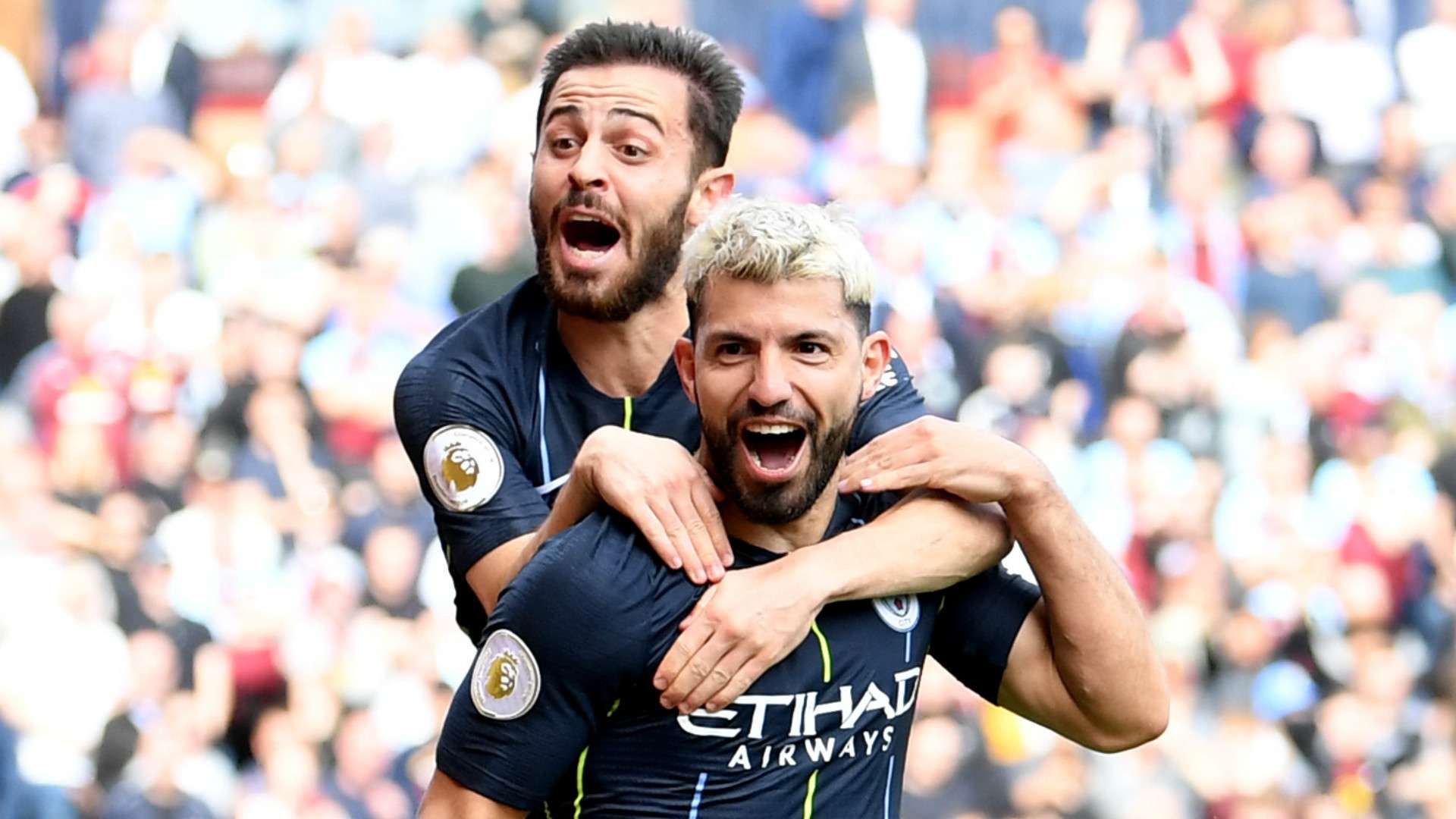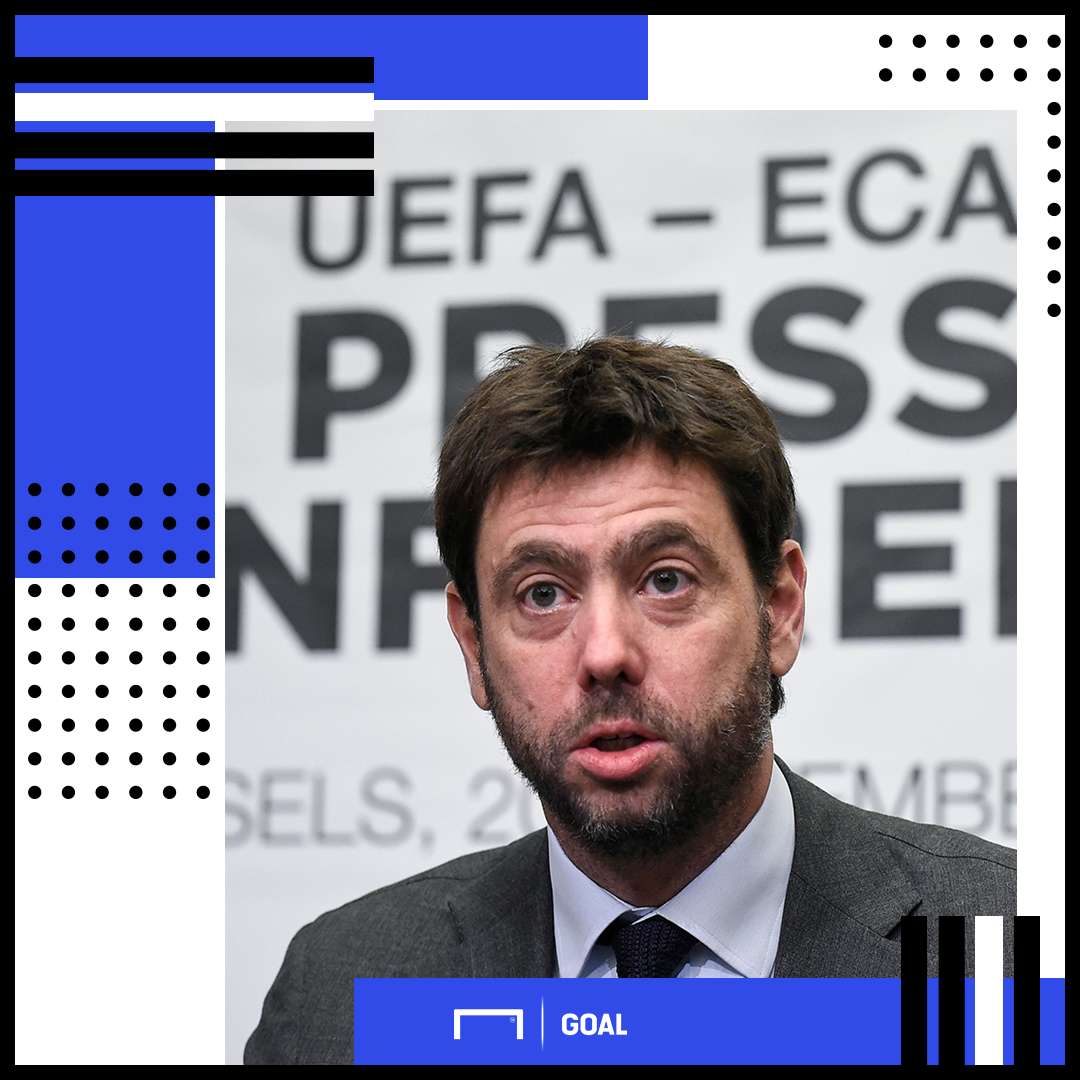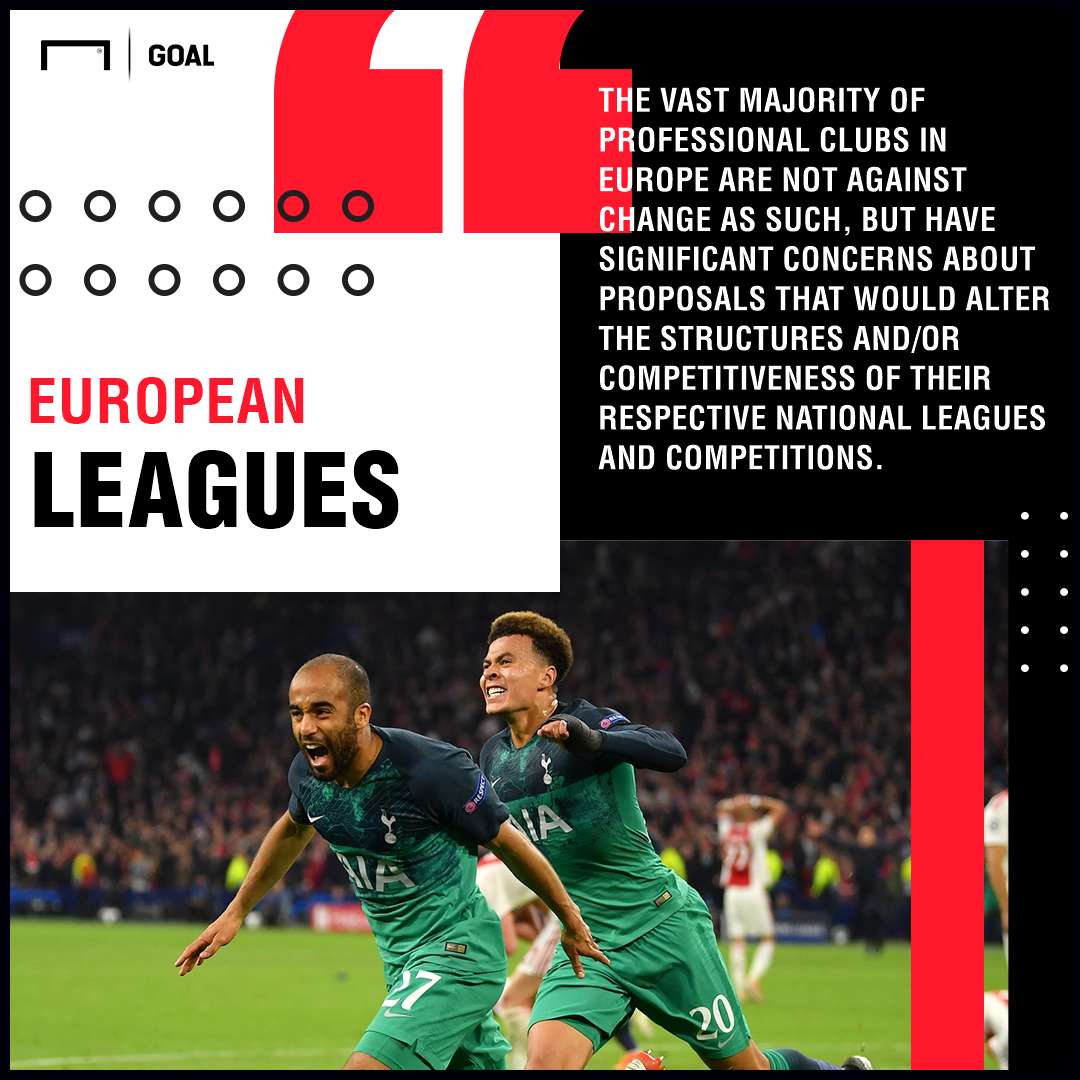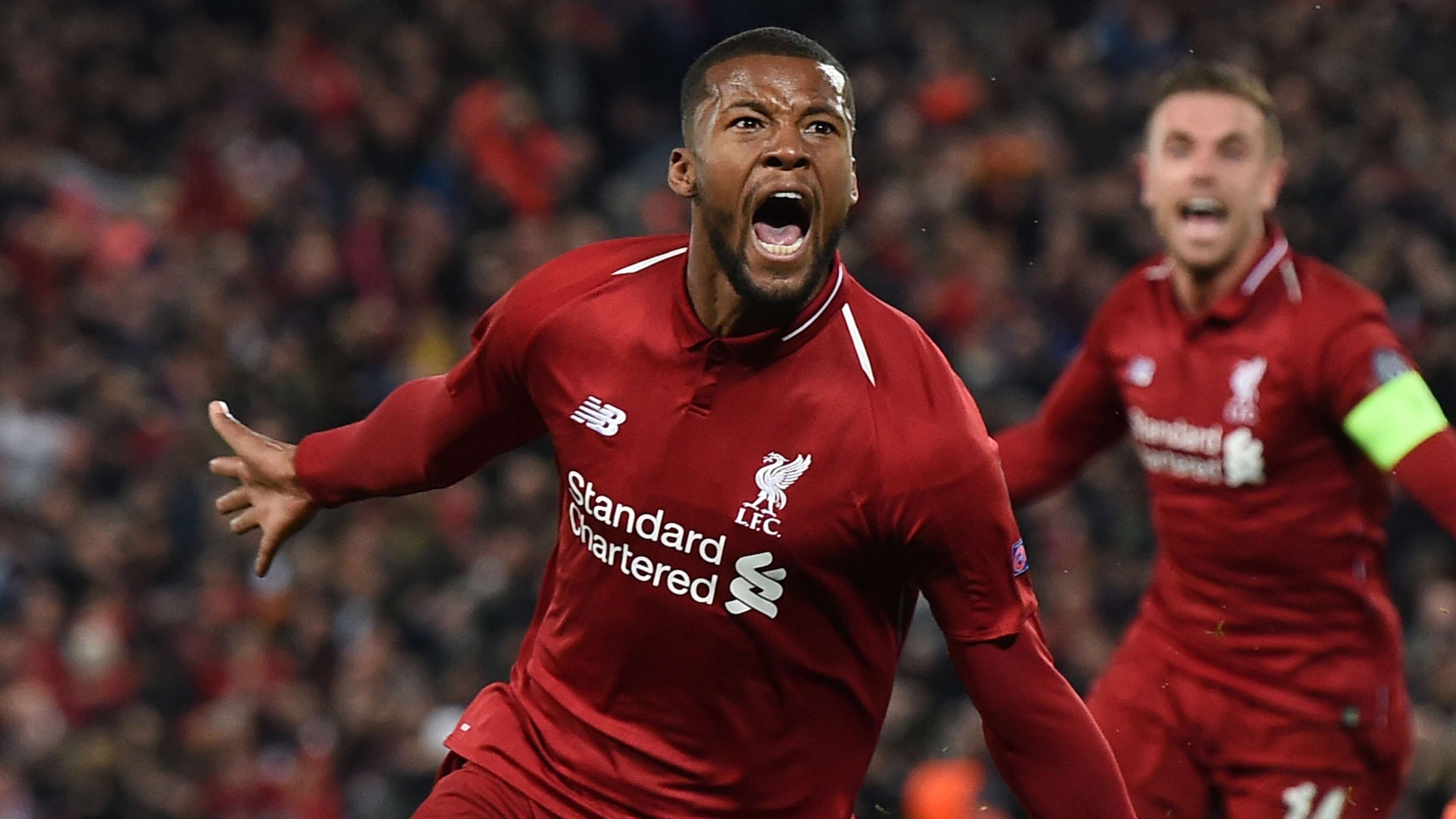For the first time ever, all four European finalists will be drawn from the same country.
On the undercard, Chelsea and Arsenal will meet in the Europa League final. Meanwhile, in the main event, Liverpool and Tottenham Hotspur will slug it out for the Champions League trophy.
Yet a different Premier League team in Manchester City are favourites to be made champions on the home front this weekend.
That takes care of five of England's so-called 'Big Six', with only a chronically underperforming Manchester United not accounted for.
This is an unprecedented level of domination.
Allied to this clean sweep is an international under-17 title – achieved with players the calibre of Jadon Sancho, Callum Hudson-Odoi and Phil Foden – as well as a world under-20 crown won by top-flight regulars like Ainsley Maitland-Niles, Dominic Calvert-Lewin and Lewis Cook.
The financial might of the Premier League and the implementation of the England DNA system in national underage teams has brought never-seen-before comforts and advantages for the best English clubs and players.
It could well mean the beginning of a long-term trend, where the gains made by English clubs at the expense of others in terms of its broadcast revenues finally begin to tell.
This year, its teams are superior than anything mainland Europe can offer. They are fitter, more mentally robust and have in turn seen a spectacular pay-off. But it is precisely this kind of domination that has the rest of the continent spooked.
Because the Premier League pays 17 of its teams more money every year in broadcast revenues than UEFA pays the winner of the Champions League, it has brought on a competitive imbalance.
That imbalance is becoming a problem. Simply put, other leagues cannot sell their rights for a high enough amount to keep pace with the Premier League’s staggering rise.
In turn, it has an impact on how much a club can pay on players and staff, meaning a diminished product as England carries away the best talent. Then, the spiral downward begins.
 Getty Images
Getty Images
Because salaries in England are unbeatable to all clubs in Europe other than perhaps Real Madrid, Barcelona and Paris St-Germain, inferior players and coaches lead to a worse spectacle.
The Premier League is where everyone wants to be. On the lower rung, even clubs like Watford, Everton and Leicester City can be infinitely more attractive in pay terms than traditional European teams like AC Milan, Marseille and Borussia Dortmund.
And where the Premier League has a big six – each pushing each other to ever-better performances both on and off the field – Spain has two and a half – with Barcelona and Real Madrid occasionally challenged by Atletico Madrid – France one, with PSG, Germany one, with Bayern, and Italy only one, with Juventus.
Clubs of that category can do everything in their power to keep up with the best of the Premier League but this season it’s proving difficult. As for clubs of a lower financial order? Forget about it.
Clubs like Real, Barca, Juventus, Bayern Munich and PSG have damaged their own domestic championships, due in part to the ceaseless cultivation of players no other clubs can afford and the financial disparity which has created a yawning chasm between them and the rest.
Interest in the outcomes of those leagues will inevitably dwindle in years to come. Real and Barca have carved up 14 of the last 15 Liga titles with the other one going to Atleti. Juventus have won their eighth Scudetto in a row, Bayern their seventh Bundesliga in succession and PSG have just claimed a sixth Ligue 1 trophy out of seven.
For the field to be evened on a continental level, something has got to give. That will likely mean a drastic reorganisation of the domestic leagues that the super clubs have outgrown and of UEFA’s competitions themselves.
In other words, something could be about to drastically alter the landscape of European football.
Thwarted for years in Europe by bad luck, underperformance or sheer incompetence, this season is the logical culmination of what happens when teams at the top end of the Premier League have the opportunity to lavish unending amount of money.
And now the backlash.
Juventus president Andrea Agnelli is also the chair of the influential European Club Association group, which looks after the interest of Europe’s biggest teams.
 Getty/Goal
Getty/Goal
Agnelli has long been a vocal and open proponent of reform within European competitions and is driving force behind the latest proposal to upend the match calendar, slated for renewal in the 2024-25 season when current agreements expire.
Plans seen by AP and the New York Times stemming from a meeting between UEFA and the clubs this week suggest a closed shop is around the corner; a Super League by other means.
The only difference between this and other mooted breakaways of the past is that it will be done under the auspices of UEFA.
The European governing body has been held to ransom on many occasions by big clubs looked to grow ever bigger on revenues and the most recent top-down shake-up brought about the current Champions League manifestation, where 16 of the 32 group-stage places are reserved for teams drawn from the top four leagues by co-efficient.
For outsider clubs, the new Champions League will be more difficult to get into and – for those inside – mercifully difficult to get out of too.
That’s because 24 teams in the new format would retain their place in the Champions League for the following season with four teams relegated to a second league and only four slots open for new participants.
Naturally, that would disincentivise performance in the domestic league, rendering what is now a chase for European football extinct.
The number of supplementary slots for teams outside the elite leagues has shrunk from 10 to the current six. It does not take a mathematician to work out that the number will be cut again further to four.
The group stages – which can already feel interminable – would grow again with eight groups of four being replaced by four groups of eight. More matches mean more broadcast revenues, should fans opt to tune in.
Again, the year is only so long and in order to fit in the extra games there is a suggestion that fixtures in the new Champions League could impinge on domestic weekends.
The continent has enjoyed the Ajax run to the semi-finals, with casual fans embracing them as their second team, but the new proposals would make things even more difficult for Eredivisie clubs and their ilk.
They might well have to content themselves with life in the mooted 32-team second division, while there are also plans for a third, 64-team tier. Promotion and relegation would exist between all tiers but participation would not be impacted by a poor domestic showing.
But there is another body, called European Leagues, which says its members are strongly against the current plans.
 Getty/Goal
Getty/Goal
It stated earlier this week – before UEFA met the leagues on Wednesday – that “the vast majority of professional clubs in Europe are not against change as such, but have significant concerns about proposals that would alter the structures and/or competitiveness of their respective national leagues and competitions”.
For now, the European Leagues organisation stands as a bulwark against Agnelli’s dream.
And for its part, the Premier League is also presenting a united front.
“All clubs unanimously agreed it is inappropriate for European football bodies to create plans that would alter the structures, calendar and competitiveness of the domestic game and will work together to protect the Premier League,” a statement read last month in response to Agnelli’s plans.
It would make little sense for the top six in particular to throw its lot in with a breakaway considering the success both on the field and off they enjoy simply by being members of the Premier League.
But there are frays at the seams. The Premier League capitulated last year and agreed that, from the 2019-20 season onwards, overseas broadcast revenues would be distributed based on where a team finished in the league.
Since the Premier League’s inception in 1992, those revenues had been distributed evenly. But it was a sign of the big six’s united might, and a reminder that without the compliance of the most attractive teams, the Premier League would quickly be a busted flush.
But it is the Premier League nonetheless – and its global ubiquity and popularity – which put the big six where they are today and which has given them the advantages that Agnelli and certain others are determined to rein in.
